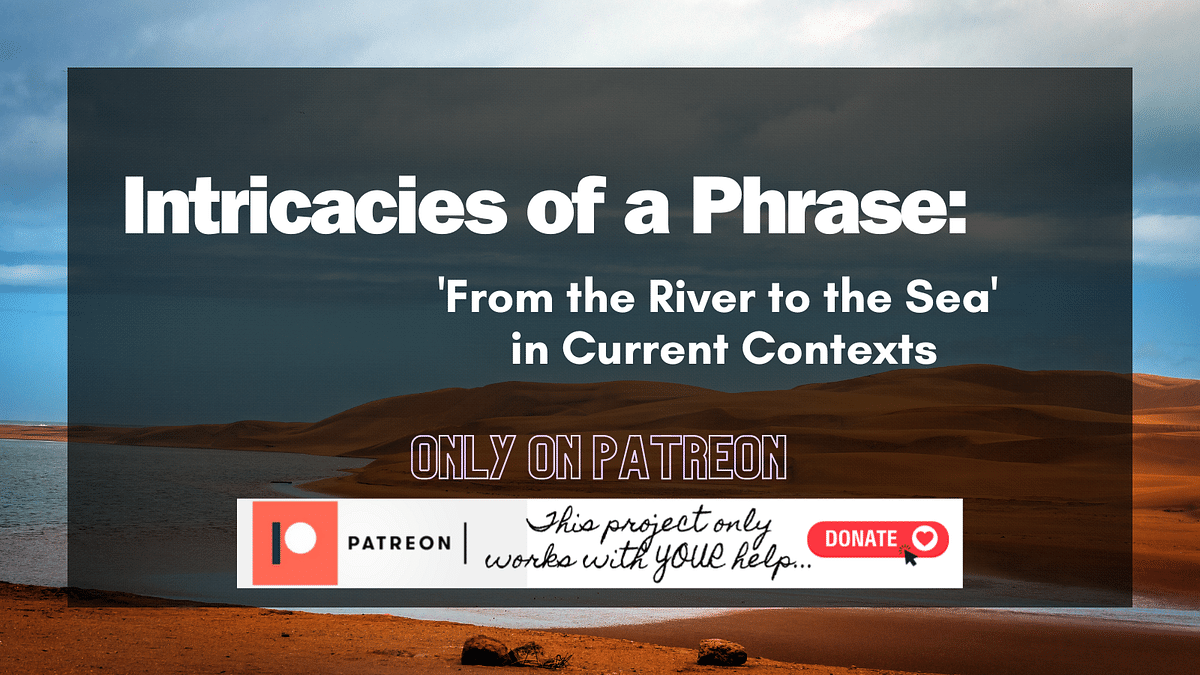
In the realm of international politics, few issues generate as much heat, passion, and controversy as the Palestinian-Israeli conflict. Over the years, numerous slogans and phrases have been coined to express the various viewpoints of this complex issue. One such phrase is 'From the River to the Sea,' which has been a topic of contention due to its varied interpretations and implications.

The phrase 'From the River to the Sea' originates from the 1960s and has been used as a rallying cry for Palestinian liberation. Geographically, it refers to the area between the Jordan River and the Mediterranean Sea, which includes the current state of Israel and the Palestinian territories. Its origins are deeply rooted in the Palestinian Liberation Organization's (PLO) objective of establishing an Arab state over the entire territory of Mandatory Palestine.

However, the meaning of this phrase has evolved over time, shaped by historical events and different interpretations by various factions. It has been used both as a peaceful call for a democratic state solution and, controversially, as an accusation of anti-Semitic hate speech. This duality in interpretation has made it a contentious phrase in the ongoing conflict.
This phrase also shines a light on the evolution of the PLO. Initially aiming to establish an Arab state over the entire territory of Mandatory Palestine, the PLO's goal has morphed into seeking statehood in the Palestinian territories. This evolution was influenced by the waves of Jewish immigration to Ottoman Syria, which shaped the conflict's trajectory.
Yet, as we navigate the complexities of this phrase, it is essential to remember that its meaning is not uniform. Its connotations can vary greatly, depending on who is using it and in what context. For instance, while some see it as a call for the destruction of Israel and the extermination of Jews, others perceive it as a cry for freedom and a democratic state for all.
The narrative around 'From the River to the Sea' is also influenced by the media, political parties, and social media platforms. The phrase has been subject to scrutiny, backlash, and even censorship, with different narratives being shaped around it.
Understanding the nuances of this phrase is crucial to grasping the intricacies of the Palestinian-Israeli conflict. It underlines the importance of contextual understanding, rather than jumping to assumptions and accusations based on a single interpretation. As the debate around this phrase continues, it is vital to encourage open and respectful dialogue on the topic.
In conclusion, the phrase 'From the River to the Sea' serves as a stark reminder of the complexities and sensitivities of the Palestinian-Israeli conflict. Understanding its historical context, varied interpretations, and current connotations is key to fostering productive conversations around this ongoing issue. As we continue to unravel the layers of this controversial phrase, it is essential to approach it with an open mind, a willingness to understand, and a commitment to peace.
![]()
Daniel Chapter 3: Bible Study by Atheists


























